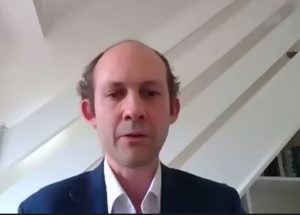The comments were made by David C. Wilson, a professor in resource and waste management at Imperial College London, during a webinar hosted by Policy Connect examining COP26 and the waste sector.
Mr Wilson said the waste sector contributes a much higher proportion of UK emissions than the approximate 5% people believe, and should play a more central part.
He explained: “It’s easy to say that the recycling sector should do more to reduce emissions, but I think the question is how do we get ourselves on the agenda.
“Organisations in the waste sector have tried to get themselves into side meetings for COP26, and most of that has been in vain because it’s a small sector, and most think that it only contributes toward 3% or 5% of emissions, so it’s not a priority. But it’s a much larger proportion, and we just don’t have the numbers to substantiate it”.
Emissions
The webinar, chaired by Labour MP Alan Whitehead, discussed the role of the waste and resources sector in reducing the UK’s emissions as COP26 draws nearer, and how it can contribute to net zero targets.
Kicking off the session was Louis Worthington, senior analyst for international engagement and waste policy, at the Committee on Climate Change (CCC).

He started by noting that the waste sector accounts for around 5% of the UK’s total emissions, and it has a “really positive story to tell” in reducing its contribution over the years.
However, he noted “concerning trends” around energy from waste (EfW) plants, which he said has increased “threefold” in the last 9 years.
Mr Worthington added that the CCC believes EfW emissions to be greater than those from coal power, and this is something that needs attention in the run up to COP26.
He said: “Progress in the waste sector has seen encouraging developments. But we have identified critical gaps in ambition. Particularly around biodegradable waste going to landfill. We think that should be banned from 2025, not 2030.
“There also need to be further direction on EfW and how that is consistent on improvements in resource efficiency. And we really to be developing a policy framework in to ring forward carbon capture storage.”
ESA
In response, the executive director of the Environmental Services Association (ESA) Jacob Hayler, agreed that the UK needs to prioritise carbon capture storage options as well as funding for electric vehicles.

Mr Hayler however “begged to differ” with Mr Worthington’s remarks on EfW, stating that one of the main goals for the UK waste sector should be removing waste from landfill and diverting it to energy recovery.
He added that the ESA believes 2030 to be a viable target in removing biodegradable waste from landfill.
He said: “We tend to get overlooked as a sector. And the reason or that is it tends to be landfill that most of the attention, and the rest of our emissions get disaggregated. What many people don’t realise is that the main source of emissions from our sector comes from recycling.
“Recycling is the biggest part of our footprint and as we strive to boost recycling rates going forward, it will at first look like it having a detrimental impact on our emissions. But those emissions are associated from much bigger avoided emissions in the sector.”











Subscribe for free